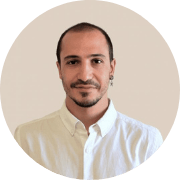Introduction to the project
The 21st century marked a big change from the past in many fields from many points of view. Let’s think about the economy, the different faces of politics, or the new ways of making wars nowadays. Moreover, if we also add the consequences that Covid-19 is causing to our societies, we don’t need much evidence to show how much life has changed compared to 20 years ago.
These changes reflect on our daily lives, on our ways of building relationships (with parents, partners or friends), trusting people, but also our ability to learn, remember or analyze things.
There are two main questions that put in motion this project about teachers as leaders:
What’s the new horizon for schools?
This is the first question, and it’s a question that a lot of educators have asked for centuries. Schools must consider the changes that happen in their society and lead the new generations towards them. But the problem is that nowadays, these changes are so fast and so complex, that it is almost impossible to explain to our students what is right or wrong or what’s best for them.
Let’s think about new technologies and let’s make an example. Take a teacher (there’s no difference if the age is 60, 45 or 30 years old) and think about how difficult it is to educate nowadays students towards a responsible use of instruments like smartphones and social media. All people born before 1995 were thrown into a completely different world, dominated by new technologies, in the space of not even a decade. And this transition happened without much education about it, without any advice, instruction or instrument that could help to face the dangers connected to this new way of living.
How can older generations educate new generations?
Older generations, which lived passively this big fast transition, have to effectively educate new generations about something that most of the world ignores. How can they do it? This was the second driving question that led us to collaborate on this project. We don’t know how to behave in this world and, even more, we don’t know how the world will be in a decade. Probably you’ve heard this famous sentence: “the school must educate new generations for their future”. This sentence is still true. But to apply it is much more difficult today.

What does “Teacher as Leader” mean?
For this reason, we felt the need to define the teacher as a leader, meaning a person that holds certain qualifications that don’t change over time.
It can happen that the teacher leader ignores something about the present world (like, for example, new technologies); and it happens (to everybody nowadays) that we look to the future (even to the near future) with a lot of insecurity and uncertainty.
The teacher leader knows and accepts this; understands that it is complicated to explain the world, so he/she tries to promote the development of soft skills, starting from emotional wellbeing of students, moving through the 4 Cs (collaboration, communication, critical thinking, and creativity) and considering every space and every component connected to the teaching-learning process, meaning the school environment, families and, of course, the classroom.
This way, the teacher acts as an adult that can help students to be happy in their future, regardless of the specific challenges that they will have to face. This way, students will be able to act and react to the difficulties of their lives, no matter if these obstacles are caused by changes in society or by personal events.
The topics of the project are many and embrace a lot of aspects of education. Moreover, they are not just connected to the person of the teacher, but also to every school setting and students’ families.
Here is an overview of the project’s main results and how these have been achieved.
The results of the Erasmus+ project
All the material produced is the result of the collaboration among six European organizations, coming from Poland, Romania, Greece, Turkey, Bulgaria, and Italy. We shared our experience in different fields since some of the stakeholders are primary or secondary schools, some others are University and others are academies for teacher training and professional development.
The project was supposed to be developed by partners working both in a remote way but also in person together. Unfortunately, the new situation connected to covid-19 forced all the partners to complete the project through online meetings, due to the impossibility of meeting all together in one place. On the other hand, since the project started in 2018, we were able to meet four times, in Poland, Italy, Romania, and Greece. This allowed us to get to know one another and to establish that human contact which is essential for building trust and positive emotions, and that is so helpful for collaborating and working together toward a common goal.
Actually, as the collaboration went on, we experienced firsthand how important these human values are for working and learning; and that’s why we tried to emphasize them in our work, highlighting how important it is for schools and teacher-leaders to work on these skills with their students. Completing our project has been hard due to the distance; we experienced the difficulties that every teacher is facing today. So we could say that the project itself is the product of the new challenges of our contemporary societies.

The results of this 3 year-long collaboration are very practical. They can be considered as three different tools having the same common topics but slightly different applications.
The Handbook
The first one is a “Handbook”. This book describes in a detailed way how the teacher can be a leader for her / his students considering the different fields in which she/he must act:
- School management (managing the school as an organization);
- Teachers’ work;
- Students’ leadership;
- Work with students’ parents and the local community (environment).
So the handbook represents a step-by-step guide for every educator and can be consulted as a whole work but also for specific problems, since it is well-organized into chapters and sections.
The Handbook is also available in the following languages: Italian, Romanian, Turkish, Polish, Greek, Bulgarian.
The Standards
Another very important result is represented by the “Standards”.
The purpose of these standards is to stimulate dialogue among stakeholders of the teaching profession about what constitutes the knowledge, skills, and competencies that teachers need to acquire for playing a role of leadership in their schools. We have worked on these competencies with particular attention to emotional and social skills, and not just pure knowledge.
The Training Kit

The last result of this project is represented by a “training kit”.
If the handbook and the standards are the content of our research, the training kit is the way in which we transmit this content. We could simplify even more and say that the handbook and standards represent the theory component, while the training kit represents the practice component.
The training kit is a series of practical activities (in the form of videos, presentations, and documents).
- School staff can use it for self-learning;
- It can be used to organize training sessions by teachers’ associations and teachers’ consultants;
- It can be used to organize the training for teachers – leaders by trainers in the educational institutions;
- It can be used to disseminate the training idea among the schools and training centers on the local or/and regional level;
- It is a valuable tool for educational policymakers to improve the quality of education;
- It can also be used in the work with learners and students, as part of their curriculum.
Conclusion
The aim of this project, from the beginning, has been to produce something practical, rooted in theory. We are sure that this material will be of great help to all professionals in the education field. Our hope is that this project will also raise awareness about how we should change our way of considering the whole teaching-learning process, so that every teacher will have not just the possibility, but also the enthusiasm to become leaders for their students.

